Google is the most popular search engine in the world – it captures over 86% of the market.
In 2020, Google processed a mind-blowing 7 billion searches a day!
Here’s a review of the top three searches from the past few years:
- 2018: World Cup, Hurricane Florence, and Mac Miller
- 2019: Disney Plus, Cameron Boyce, and Nipsey Hussle
- 2020: Election Results, Coronavirus, and Kobe Bryant
When people perform searches, Google sifts through a flood of online content and ranks it by relevance and popularity. Over 90% of visitors click on first-page Google results because those websites are synonymous with quality content.
How does Google keep its top results high quality?
In 2012, Google introduced Google Penguin – a complex algorithm for detecting and penalizing websites that try and cheat the system through fake links and keyword stuffing.

What Is Google Penguin?
Ranking high on Google search isn’t a matter of luck.
Google is very clear about what they expect from websites. It posts its Webmaster guidelines publicly for everyone to read. Websites that follow these guidelines have a higher chance of ranking near the top of results.
What happens when website creators break these guidelines?
That’s a question Google wanted to address in their 2012 search algorithm update. Developers designed Google Penguin’s algorithm to search for indicators of websites manipulating the system to steal top result spots – then penalized those websites by pushing them further down in search results.
[bctt tweet=”Developers designed Google Penguin ? to search for indicators of websites manipulating the system to steal top result spots – then penalized those websites by de-ranking them. Learn why it still matters for SEO today.” username=”ExpWriters”]
Some of the indicators Google Penguin looked for were poor-quality links. These are spam links or links that people purchased with the sole purpose of making a website appear higher quality than it is.
Google reported over 3% of search results saw the effect of Google Penguin’s new algorithm.
How Update 4.0 Changed Google Penguin
Google Penguin went through seven significant updates over the years:
- Google Penguin – April 24, 2012
- Google Penguin 1.1 – March 26, 2012
- Google Penguin 1.2 – October 5, 2012
- Google Penguin 2.0 – May 22, 2013
- Google Penguin 2.1 – October 4, 2013
- Google Penguin 3.0 – October 17, 2014
- Google Penguin 4.0 – September 23, 2016
The last Google Penguin update, Google Penguin 4.0, brought an end to separate updates. Instead, Google Penguin became part of the core algorithm.
The algorithm itself didn’t change. What changed is how Google connected to Penguin. With Google Penguin as part of the core algorithm, websites saw immediate results in their search rankings.
Website content creators no longer look at Google Penguin updates for the latest guidelines on website content, but at Google’s algorithms as a whole, since they’re now the same.
Another change that took place with Google Penguin 4.0 is how Google punished websites that cheated the system.

Screenshot: Search Engine Journal
The new update doesn’t punish websites as severely as previous versions. The first Google Penguin updates penalized whole domains for spam links – causing webpages to sometimes drop out of results entirely. Penguin 4.0 only penalizes subpages and specific URLs.
The new Penguin update also allows websites to regain their rankings faster by correcting faulty links.
The 5 Steps of Google’s Search Algorithm Today
What does Google’s algorithm look like today – and how can your website rank on the first page?
Google lists five steps that it takes every time someone performs a search. Using these five steps to customize your content, you can gain high rankings while avoiding penalties from Google Penguin.
1. Interprets a Person’s Meaning
When you enter a search into Google, the search engine analyzes not just the individual words – but the semantics of your search.
This analysis consists of correcting misspellings, including synonyms in results, and identifying the context of the search.
Content creators benefit from this algorithm because it means you don’t have to know the exact words people are searching for. Your blog post on “The 5 Best Ways to Clean Your Car” also has a chance to rank when people search “best ways to clean your vehicle”.
2. Finds the Most Relevant Results
Have you ever heard of keywords? They’re one of the two most important ranking factors.
A keyword is a term or phrase that’s used repeatedly on a page. Repeating a keyword helps Google identify that page as a relevant result for a topic.
For example, this post’s keyword is “Google Penguin”. When people search for information on Google Penguin, Google will see how often this post mentions their algorithm and is more likely to suggest a reader visit our website.
Not all keywords are equal. Over 92% of keywords get fewer than ten monthly searches. That’s because people don’t always search for the keywords content creators use.
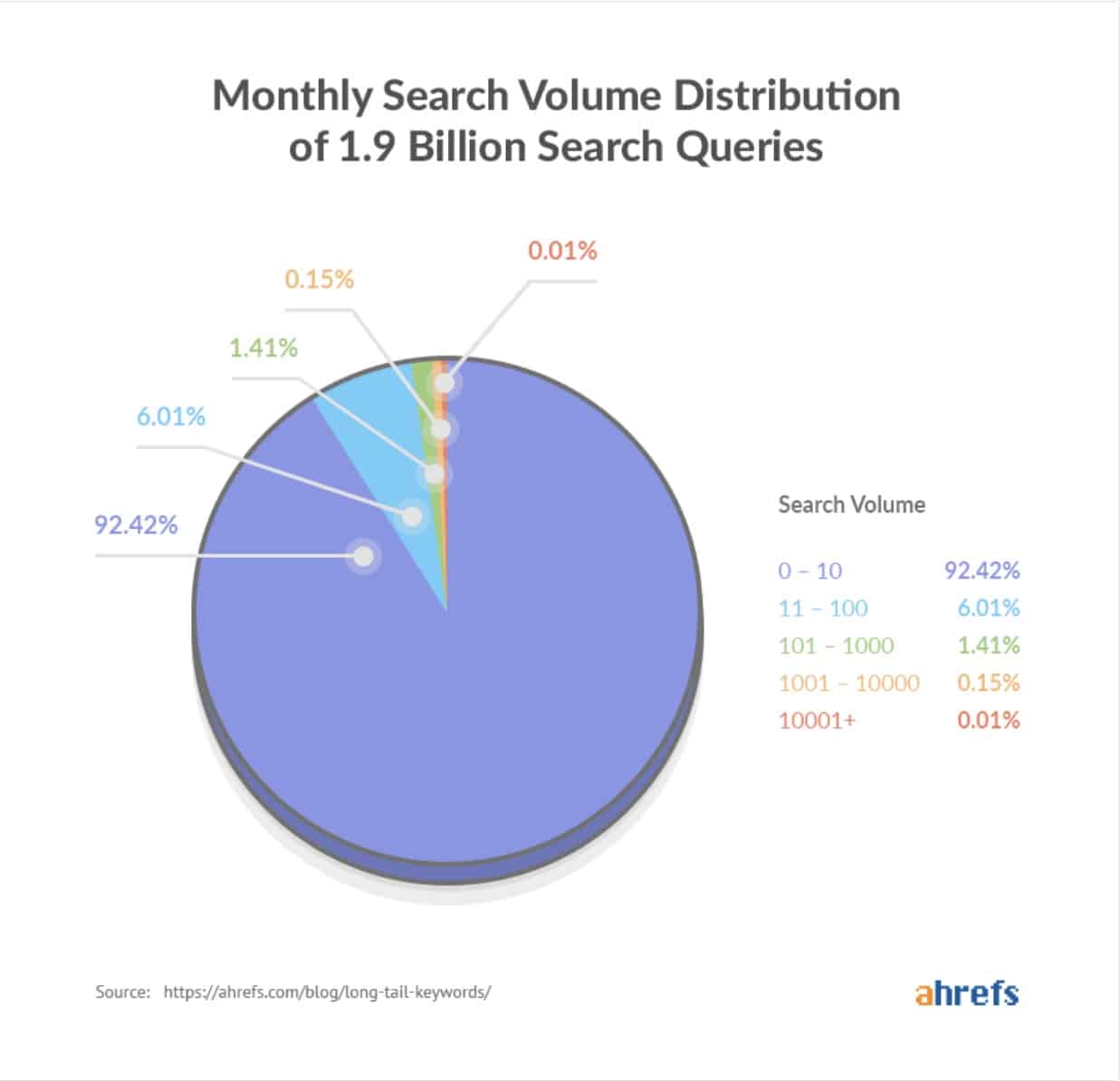
If you want to know what keywords people search for, try two easy methods:
1. Begin a search query on Google and write down Google’s suggested searches.
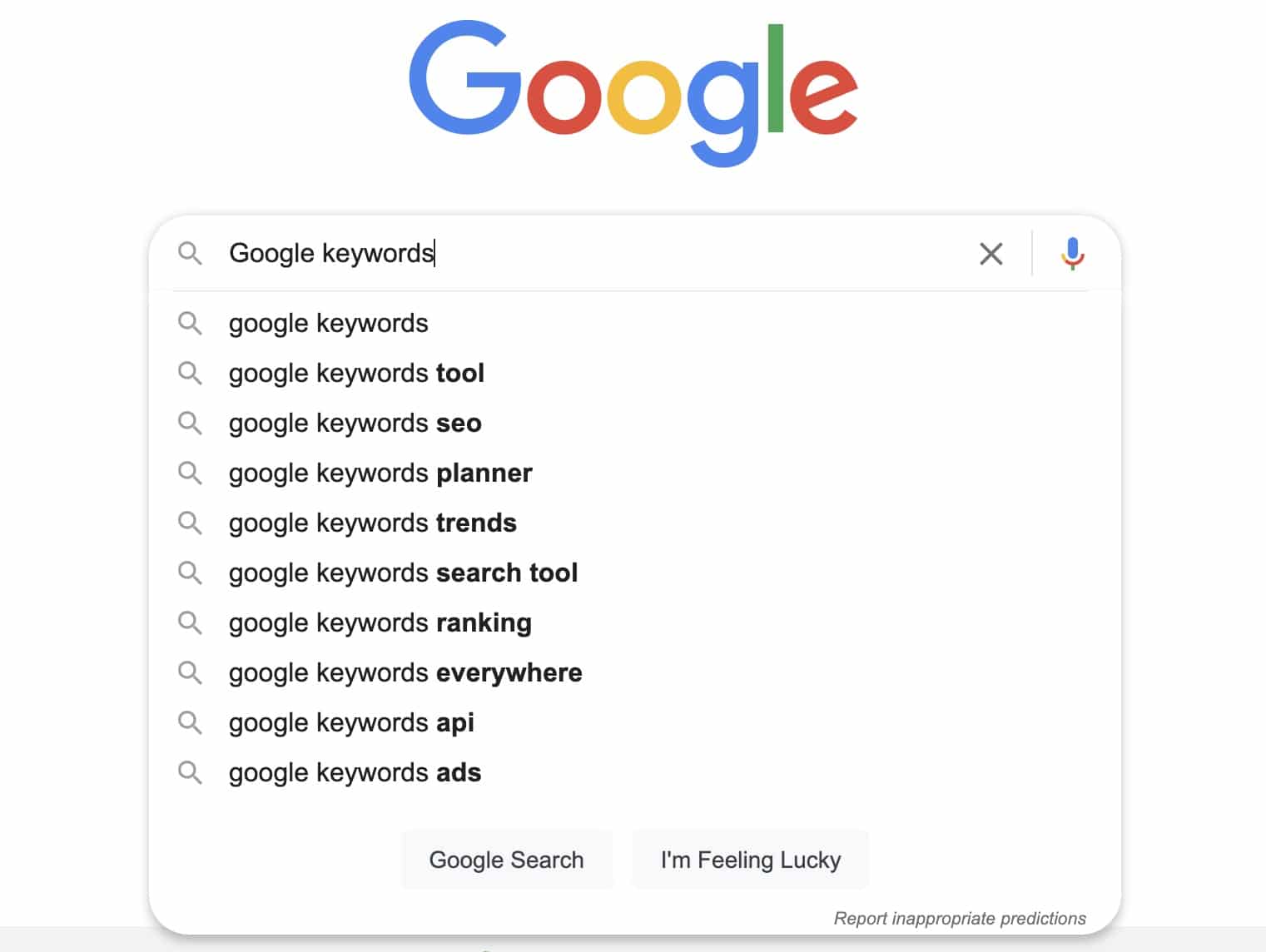
2. Search your page’s topic – then scroll down to the bottom of your search results for related searches.
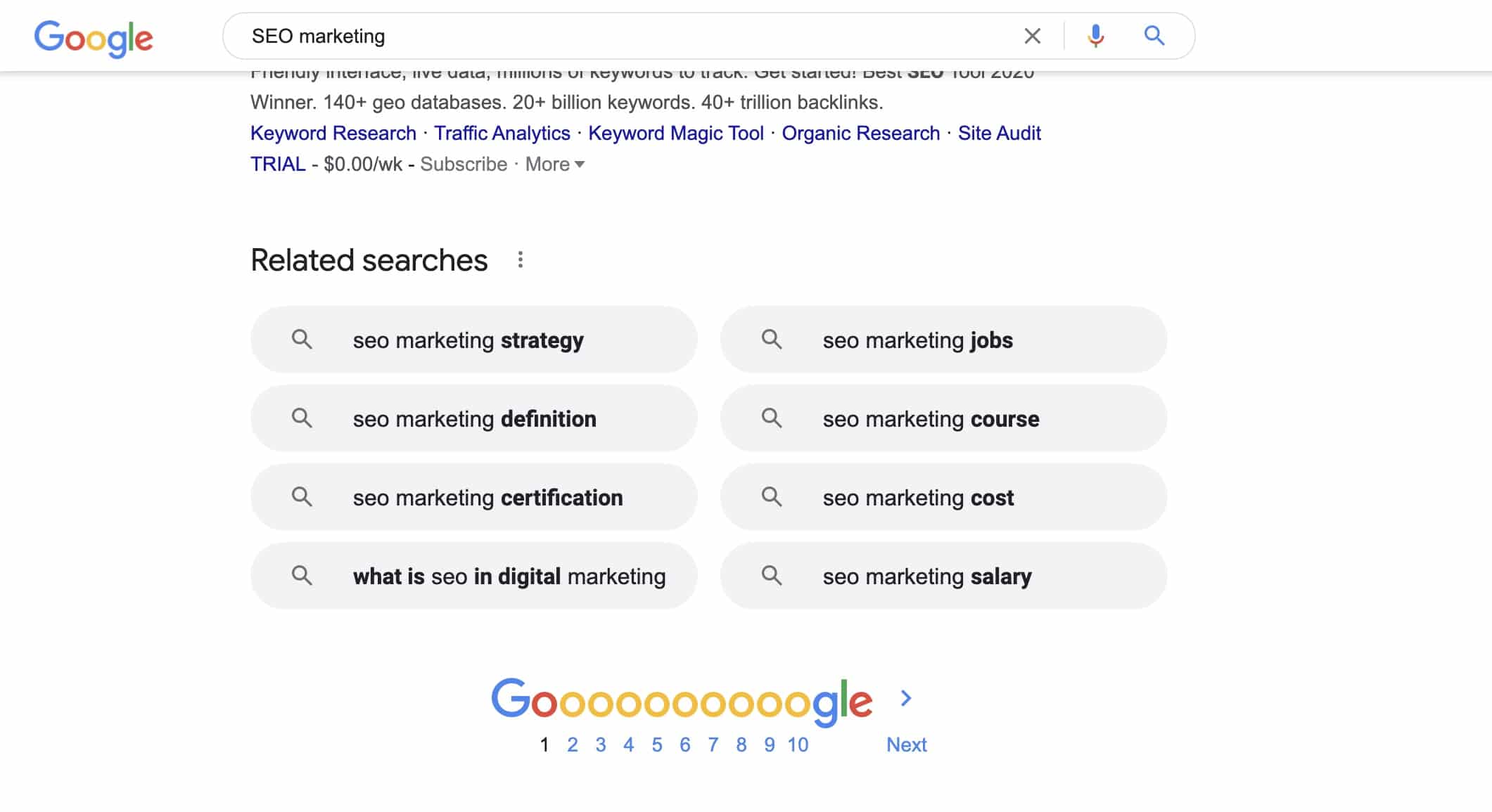
[bctt tweet=”Want to find out what keywords people actually use? ? 1) Search for a topic on Google. ? 2) Write down Google’s suggested searches (the autocomplete text that pops under the search box) and related searches (at the bottom of the page).” username=”ExpWriters”]
You can learn how to use keywords most effectively on your site by enrolling in the Expert SEO Content Writer Course.
3. Assesses the Quality of Websites
How does Google know if a website is reliable?
First, Google’s algorithm looks for popular websites. As people visit, comment, and interact with your site – your site moves up in rankings.
Second, Google looks at inbound and outbound links. When other websites link back to your content, Google sees this as a sign that you produce high-quality content. The more sites that link to your website, the higher you will rank in Google.
When you also link to reliable websites, you show Google that you value other quality content. Alexa’s tool for analyzing websites and their quality can help you find reliable sources for your outbound links.
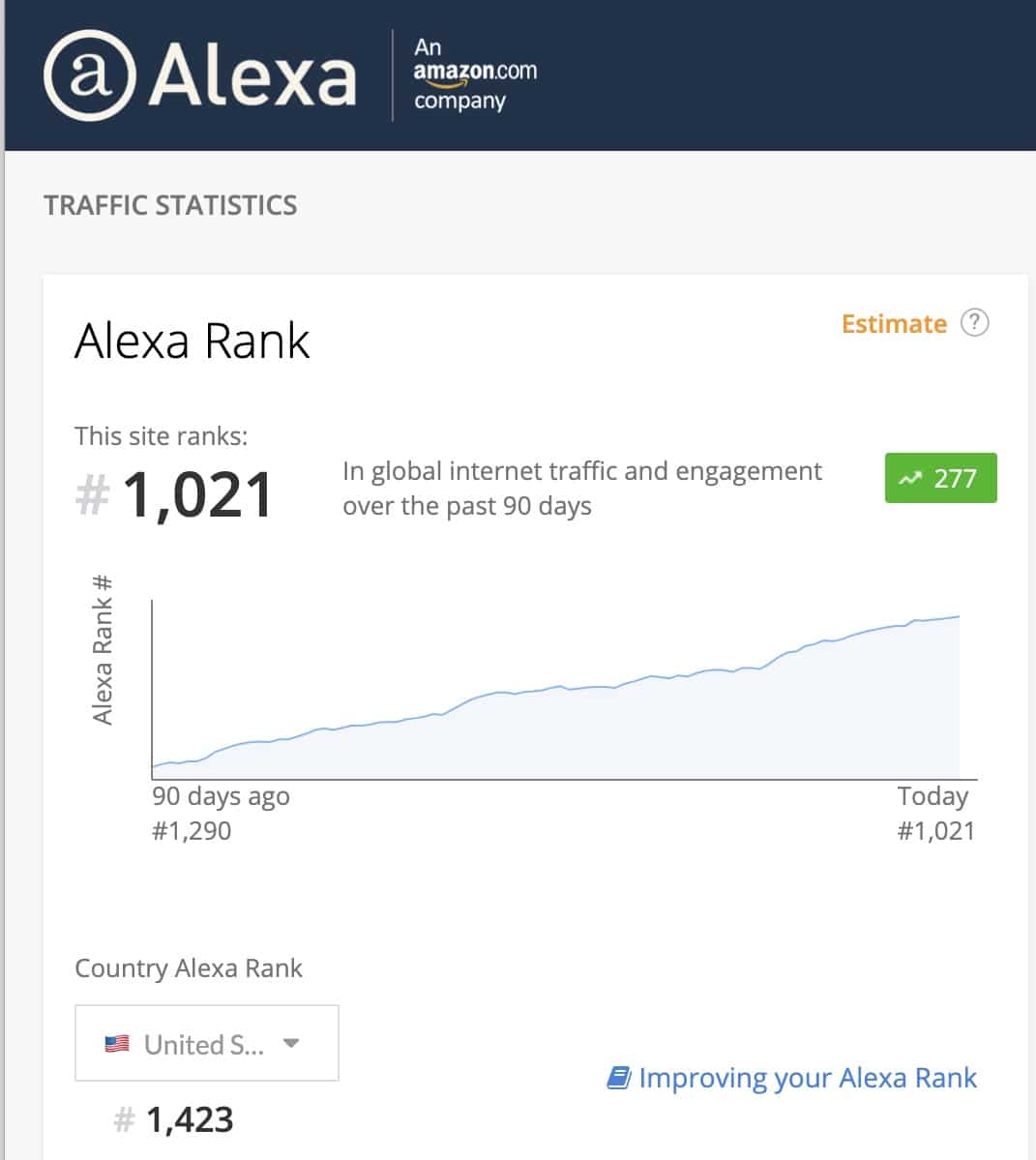
Quality linking is the third most important part of SEO. Over 51% of content creators who use quality links start seeing better results in less than three months.
Internal linking is just as important as external linking. By adding a link to another page on your website, you’re connecting all the pages of your website as one. This connection shows search engines that each of your website’s pages is equally reliable.
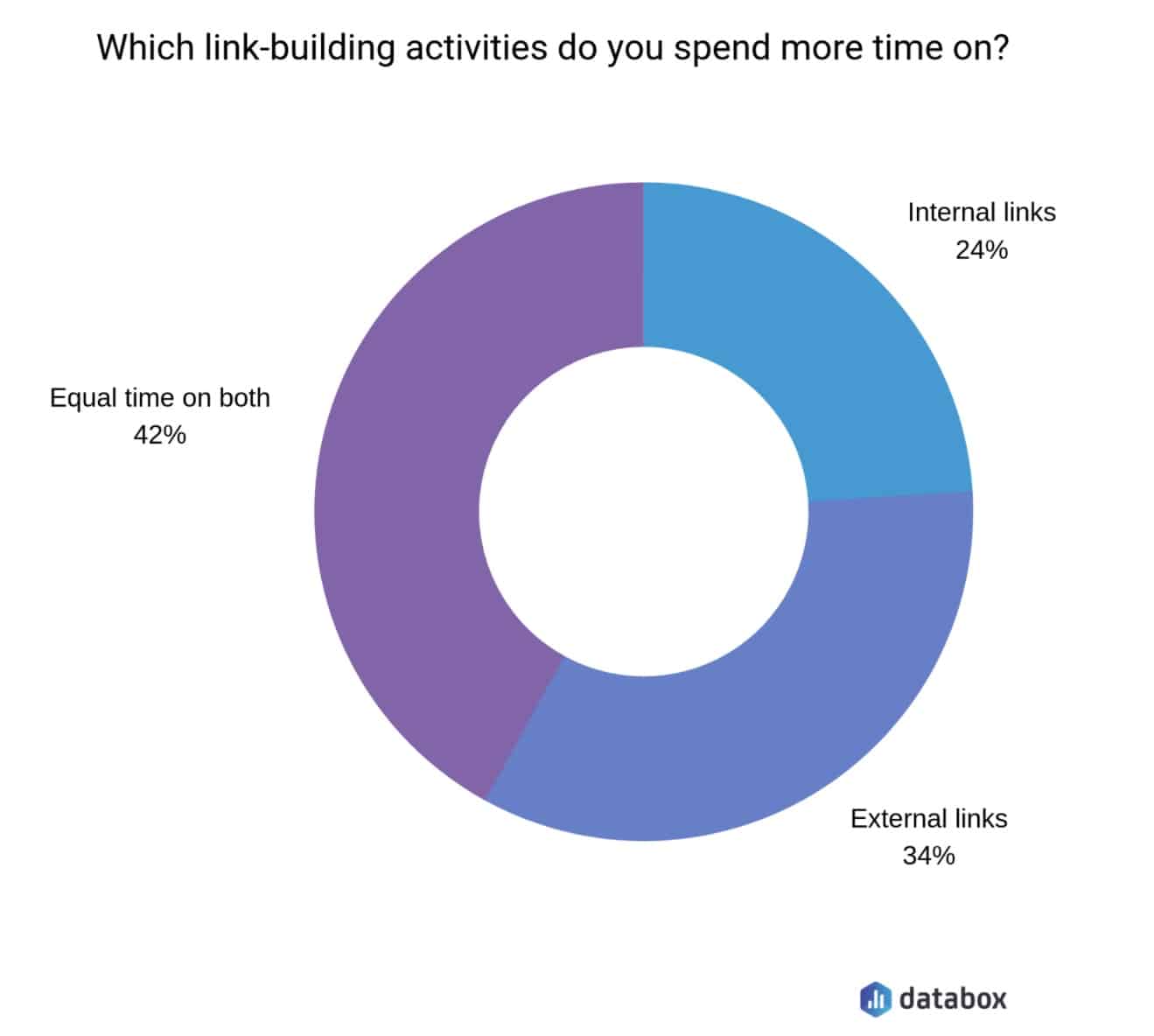
4. Weeds out Unusable Content
Have you ever left a website that loaded too slowly? Do you find yourself immediately closing pages on your phone that are difficult to read?
Google wants to make your search experience as pleasant as possible by weeding out sites that load slowly, navigate awkwardly, or format incorrectly on your device.
68% of visitors use their mobile device to access websites – while only 29% of visitors access websites through their desktop. Google wants top-level content accessible and readable across all devices.
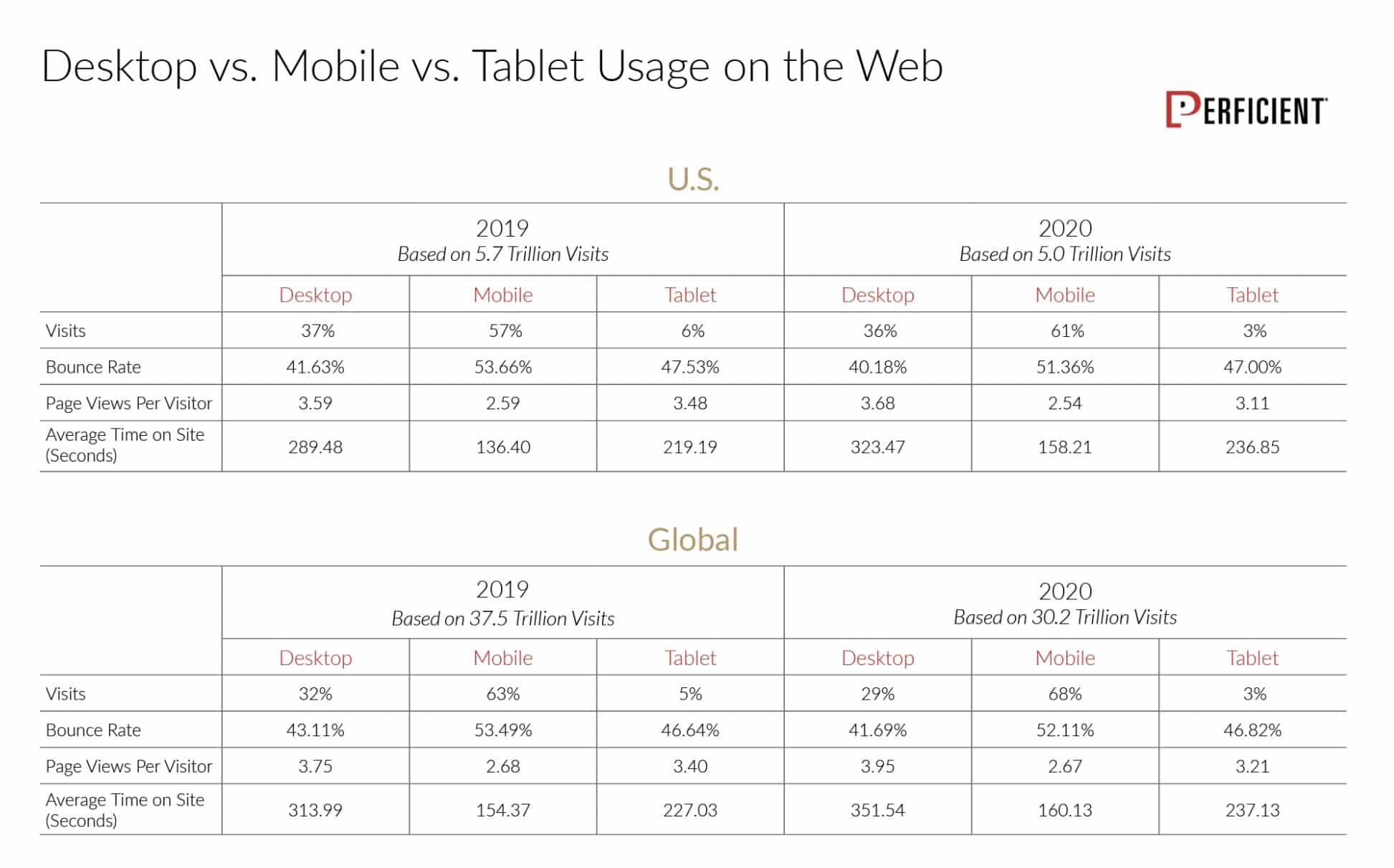
If your website only looks good on your computer, you may find yourself losing out on top page rankings. To ensure your website runs smoothly and works on all devices, hire a website developer to design your site.
5. Analyzes Personal Preferences
Does this situation sound familiar?
You tell your friend about a treadmill you’ve been eyeing up. Next thing you know, Facebook has ads for that treadmill plastered everywhere! Even random websites you visit on Google somehow know you want that treadmill.
Most people have accepted that technology tracks what you do. While being tracked may make you uncomfortable, it also has its benefits.
Google uses the data it collects on you – where you are, what you search, websites you frequent – to tailor search results to your lifestyle.
If you search for coffee shops – Google can use its location tracking to know you’re in Virginia and show results for your area.
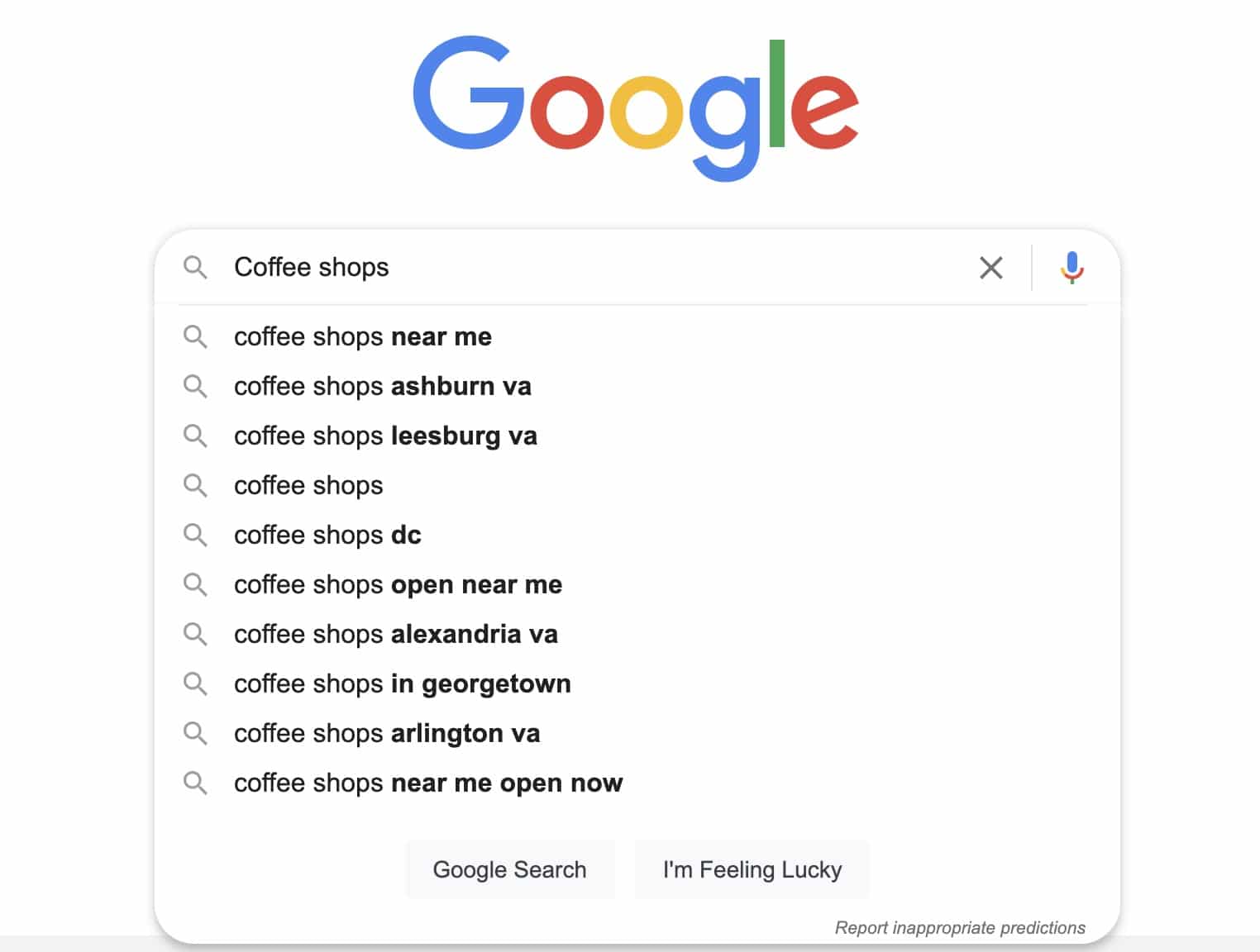
As a content creator, you can use this feature to tailor your content to specific audiences. By adding locations to your website, you show Google that you are a relevant search result for anyone in the area.
How Websites Avoid Penalties with Google Penguin
What you learned about Google’s five steps in finding search results is meant to help you create quality content. If you try and cheat the system – Google Penguin will drastically drop your ranking.
“White hat SEO” refers to websites tactics that follow search engine guidelines – while “black hat SEO” are underhanded tactics meant to manipulate the system.
Here are the two most common black hat SEO practices and how you can avoid Google Penguin penalties through proper white hat SEO.
Feeling overwhelmed by all the content rules? Hire a content writer to create quality content for your website.
Avoid Keyword Stuffing
The second step in Google’s search process is to locate relevant websites through keywords. If you fill a page with keywords without adding quality content in-between the keywords, you are keyword stuffing.
Quality content includes content that is authoritative, informative, and engaging.
Most first-page results have close to 1,500 words. If you do try and meet that average, don’t compromise your quality to meet a word count, or else viewers will discard you as full of fluff instead of a leader in your industry.
Make every word on your website count.
Use Quality Links
You can buy almost anything online – including links.
Buying links is a practice a web builder does to gain higher rankings. When people buy links, they exchange money or equal links for a link to their website– making their website appear more reliable than it is.
Another link scheme is using unnatural links. These are links that are hidden on a page to try and trick Google search – but don’t add any value to the page.
To avoid Google flagging your links as spam, intersperse them in quality content. If you do have an ad link, label it in the link attributes.
Avoid Penalties from Google Penguin through Quality Content
Google has over 200 factors that influence ranking. That is a lot to keep straight while simultaneously avoiding penalties from Google Penguin.
We at Express Writers offer content writing services that hit on the main factors affecting your website’s ranking: creating quality content, adding reliable links, and customizing your keywords.
Check out our content shop and start publishing quality content on your website today.


